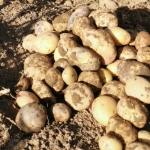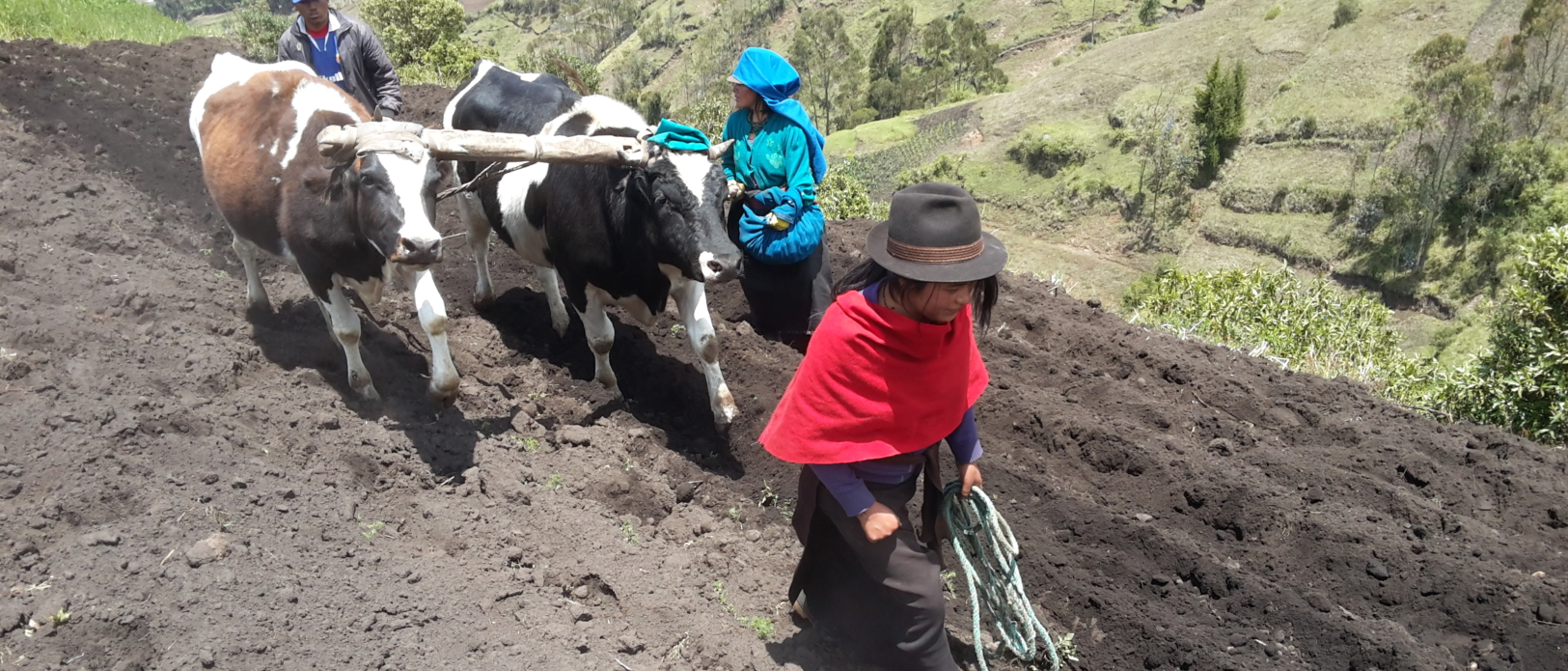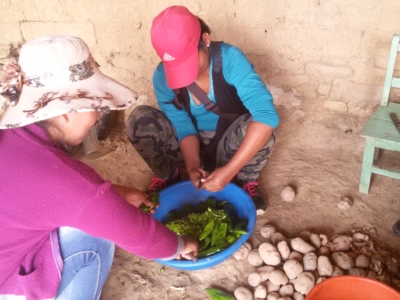


Bolivia, Ecuador, and Peru
See MapThe Andes is the center of domestication of many important crops, including potato, peanut, quinoa, and lupin as well as llamas, alpacas, and guinea pigs. The ancestors of modern Quechua and Ayamara people developed agriculture in the highland Andes more than 5,000 years ago. Their descendants have been refining Andean farming systems ever since to adapt to the extreme and unstable mountainous environment characterized by large diurnal temperature changes and steep slopes.
The two central principles of Andean agriculture are 1) communal structures emphasizing reciprocity, and 2) mitigating risks through a diversity of crops, varieties, planting dates, and plot locations.
Current threats to Andean agriculture include global markets for labor and food as well as climate change. Local sources of innovation are abundant. Multi-actor connections need to be strengthened to provide sustainable responses to changing conditions.
The Andes CoP encompasses the highlands (2,500 meters or higher above sea level) of Bolivia, Ecuador, and Peru. The CoP supports integrated and diverse production. Funding is directed toward local food systems and markets, nutrition, seed networks focused on conserving and enhancing agricultural biodiversity, ecological pest management, risk management focused on climate variability, and soil health. Pathways to change in the Andes CoP include integrating different knowledge systems, taking a landscape approach, incorporating natural and human systems, and providing various options for different contexts. The CRFS emphasizes social and horizontal learning approaches based on trust and respect at all levels and scales.
The three pillars of the Andes CoP’s capacity strengthening strategy are:
Andes CoP Regional Representative, IMEP Team Member
Andes CoP Liaison Scientist

This project operates in a relatively isolated region of Bolivia—two municipalities within the Department of Chuquisaca—where many members of farming households have migrated permanently. Farmers produce various crops, including potato, chile, maize, and groundnuts, both for sale and household consumption. Groundnuts are often the only cash crop, and many farmers grow organically specifically for the export market. To date, the project has focused on different themes of interest to these farmers, including organic peanut production (preferred varieties and management of pests and diseases) and an assessment of the agroecological systems functioning in their farms (exploring ecological/productive, economic/participatory, and cultural/organizational dimensions).